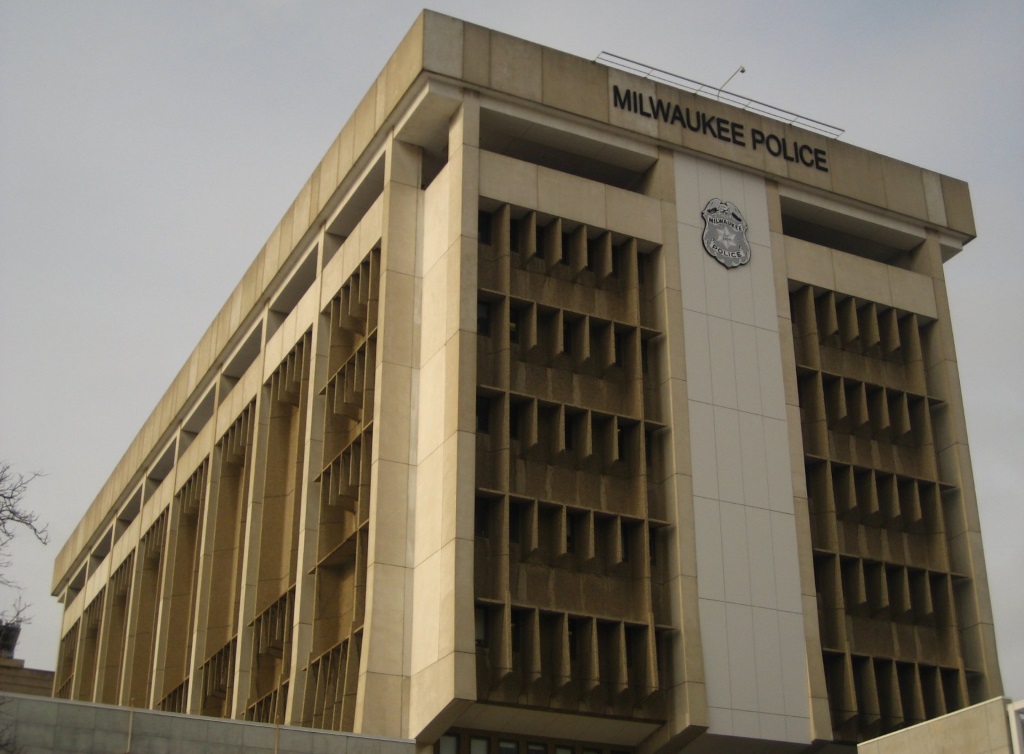Most Home Drug Searches By Police Use No-Knock Warrants
77% of all searches by MPD in 2019, report finds. First in a series.
Recent changes affecting the Milwaukee Police Department could severely limit the use of no-knock searches in the city – but won’t completely end the practice. That’s partly because state, federal and suburban cops conduct a lot of searches in Milwaukee on their own authority. And Milwaukee cops, in some instances, can still ask for no-knock warrants.
Another factor is just how normalized no-knocks became in the War on Drugs, with police saying the element of surprise protects officers and evidence.
And Milwaukee County court commissioners and judges almost always granted those requests (92% approval rate), the research found.
The year 2019 was chosen for this project because it was the most recent year unaffected by the coronavirus pandemic, which hampered law enforcement and court operations.
No-knock applications presented by police sometimes pointed to strong evidence about suspects’ ties to firearms, violent histories, use of video surveillance, and use of guard dogs. In other cases, the evidence was more abstract, referring to the tendency of most drug suspects, but saying little or nothing about the specific suspect at issue.
The Marquette review also found that:
- Officers were far more likely to seek a no-knock when the suspect was Black than when white. It was nearly an 80% likelihood in Black cases, but close to a 50-50 proposition in cases involving whites, the analysis found.
- While most raids yielded evidence, police still came up empty in one of every six searches, many of which were authorized as no-knocks.
Looking ahead, there are strong reasons to think no-knocks will be far fewer in number. Even before the Milwaukee Fire and Police Commission acted last November to limit them, the number of no-knock requests had been declining for two years in Milwaukee. That in part is likely to be attributable to the pandemic, which slowed police activity of all sorts. And out in the field, the actual use of no-knocks in real life – as opposed to just having permission to use one – had fallen close to zero in 2021, according to the Milwaukee Police Department.
The reality, however, is that the Milwaukee Fire and Police Commission’s action in November 2021 didn’t completely ban no-knocks, even though the commission said it did.
City police officers working with multi-agency task forces, for example, can still help carry them out if they can convince top police department brass that announcing a police presence before pushing inside is too dangerous or would harm evidence-gathering. It’s common for MPD officers and other local police to work on these task forces or special units.
And suburban police investigating a drug crime that spills over into Milwaukee face no prohibition on requesting a no-knock for a Milwaukee residence unless their own communities have banned them.
A suburban request came in Dec. 21 – after approval of the no-knock limits – when a police officer from Cudahy working with an FBI task force asked for and got judicial approval for a no-knock near W. Greenfield Ave. and S. 23rd St. in Milwaukee. The officer had evidence the alleged dealers would be armed. The search turned up heroin, cocaine, cash – and a gun, court records show.
But otherwise in December the new no-knock policy made a difference: no MPD officer requested a no-knock.
Milwaukee County Court Commissioner Barry Phillips approved the no-knock in that Cudahy/ FBI task force case, but he stood out in a different way.
Phillips showed a willingness to turn down police no-knock requests, a rarity among the 33 judges or court commissioners asked to approve them in 2019, the Marquette review found. He declined about 20% while handling considerably more search warrant requests than most others. By contrast, in cases handled by other judges or commissioners, only 2% of requests were declined – just three cases in total.
No-Knock’s Future
A national anti-no-knock movement flared in early 2020 after Louisville police killed Breonna Taylor during a botched drug raid. In Milwaukee, the debate over no-knocks also was influenced by the killing of Milwaukee Police Officer Matthew Rittner in 2019. He was shot while he and other officers were trying to enter a drug suspect’s home with a battering ram while carrying out a no-knock search.
Some in law enforcement see problems with overuse of no-knocks and the dangers the element of surprise carries.
“A no-knock doesn’t necessarily make the officer safer,” Jessup said. “There’s probably some benefit in reducing the amount of drugs that are flushed or hidden, but to me that’s negligible.”
In low-level drug cases Jessup’s officers often do “knock and talks” instead of home searches when dealing is suspected. That can yield admissions of guilt, and an end to dealing, in exchange for avoiding imprisonment, he said.
David Budde, a former Milwaukee Metropolitan Drug Unit member and District Attorney chief investigator, helped conduct many no-knock drug raids.
“They’re dangerous – not just to the people inside, but they’re dangerous to us,” Budde said.
Still, both men agreed with a position advanced by top Milwaukee police officials during a Fire and Police Commission debate: no-knocks should be an option if risk of injury to police is too high. (Police found firearms or ammunition or both in 45% of drug search warrants in 2019 in the county, according to the Marquette review of 312 cases for which full data was available).
Another former law enforcement official, former Milwaukee County prosecutor Hanna Kolberg, said no-knocks “should be used judiciously and carefully, but there are times where if you take the right tool away, things can happen and maybe worse or better.”
In Madison, the Republican-dominated Legislature is considering reversing Milwaukee’s ban on no-knocks.
Gretchen Schuldt writes a blog for Wisconsin Justice Initiative, whose mission is “To improve the quality of justice in Wisconsin by educating the public about legal issues and encouraging civic engagement in and debate about the judicial system and its operation.”
If you think stories like this are important, become a member of Urban Milwaukee and help support real, independent journalism. Plus you get some cool added benefits.
Court Watch
-
No Unemployment Benefits For Worker Making Homophobic Remarks
 May 17th, 2022 by Gretchen Schuldt
May 17th, 2022 by Gretchen Schuldt
-
Appeals Court Upholds Injunction Against Abortion Protester
 Mar 13th, 2022 by Gretchen Schuldt
Mar 13th, 2022 by Gretchen Schuldt
-
80% of State’s Judicial Races Uncontested
 Feb 20th, 2022 by Gretchen Schuldt
Feb 20th, 2022 by Gretchen Schuldt






















